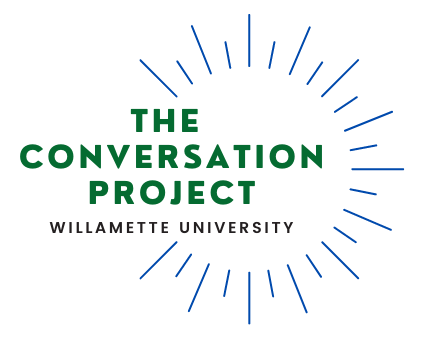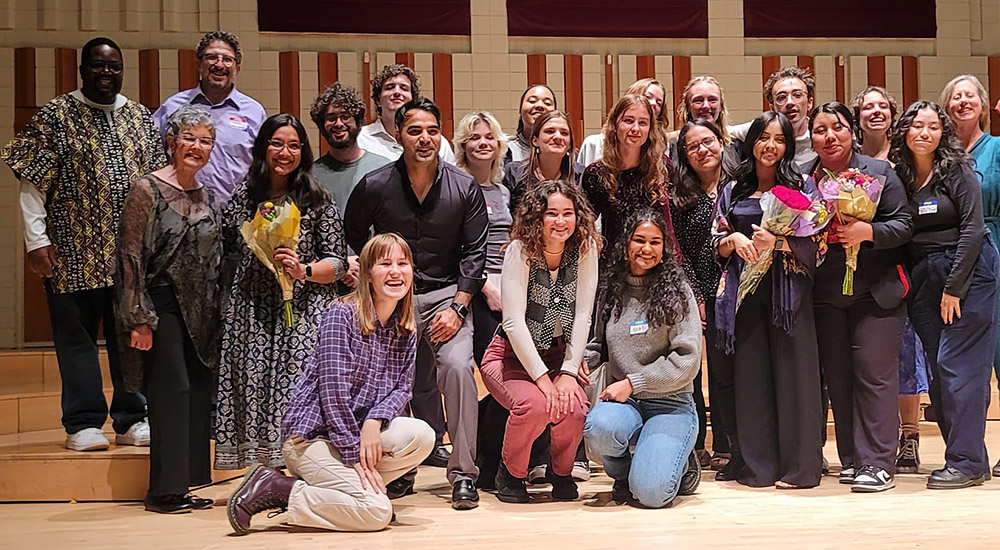
Our Mission
The Conversation Project at Willamette University is an initiative to cultivate capacity for honest, transformative dialogue.
Our Values
We acknowledge the differences in experience, culture, and power that shape our lives and we believe storytelling and active listening are vital for creating equitable and inclusive communities.
Our Vision
We aim to build healthier democratic cultures by fostering trust and belonging.
- Who we are
Our Classroom:
At the heart of the Conversation Project is a sequence of courses over two semesters.
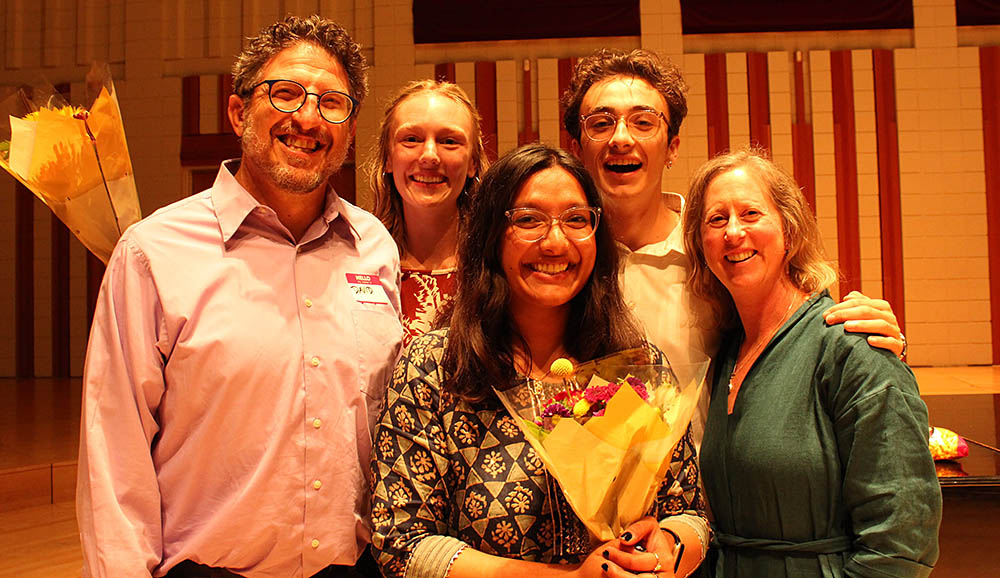
Semester 1 focuses on interpersonal skills for effective participation and facilitation of conversations: listening, staying grounded, increasing our capacity for non-reactivity, cultivating curiosity and compassion for self and others, and building bridges across differences.
In semester 2, students partner with community organizations in Salem and Portland to expand their facilitation skills and contribute to the dialogue and communication needs of the organizations. The class is run as a community of praxis that offers additional resources, reflection on experiences, and a space to support one another in the work.
In the Willamette Community:
Through a broad range of trainings, facilitation work and events, our aim is to bring the power of storytelling and cultivating conversations in every aspect of the Willamette Community.
In the Broader Community:
Building relationships with community-based organizations is a key aspect of our work. Together with local partners, we host public events celebrating the importance of storytelling and foreground the challenging conversations of our time.
Students involved with The Conversation Project are placed in internships where they work with local partners to build connections across difference. Some of our partners have included:
- The Immigrant Story
- Oregon Black Pioneers
- Salem Art Association
- Transformative Justice Initiative
- Oregon State Legislature
- Our goals
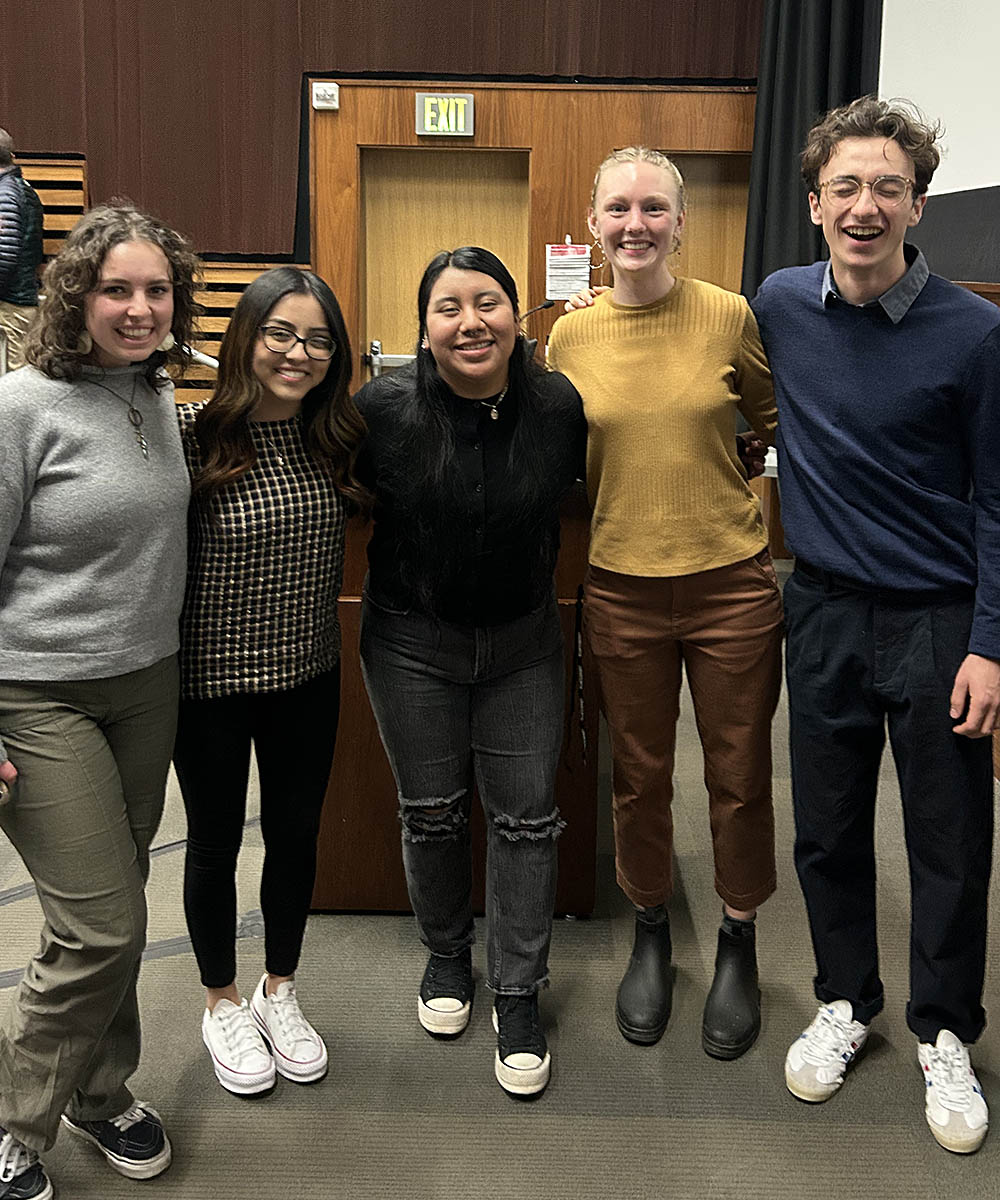 Living in a pluralist democratic society is demanding. Among other things, it requires us to give up the fantasy that those with whom we disagree will simply disappear or realize the “errors of their ways.” Rather, we have to recognize the basic lesson Claudia Rankine offers: on this long democratic road trip across an often divisive United States, we need to figure out how we are going to stay in the car together. Such commitment begins with a kind of attentive listening that is inflected with empathy, a desire to understand, and a disposition of generosity and graciousness rooted in the recognition that such work is hard for everyone who wants to honestly engage. We seek to respond to isolation with connection, fear with curiosity, and exclusion with invitation, we are committed to creating the possibilities for trust and belonging.
Living in a pluralist democratic society is demanding. Among other things, it requires us to give up the fantasy that those with whom we disagree will simply disappear or realize the “errors of their ways.” Rather, we have to recognize the basic lesson Claudia Rankine offers: on this long democratic road trip across an often divisive United States, we need to figure out how we are going to stay in the car together. Such commitment begins with a kind of attentive listening that is inflected with empathy, a desire to understand, and a disposition of generosity and graciousness rooted in the recognition that such work is hard for everyone who wants to honestly engage. We seek to respond to isolation with connection, fear with curiosity, and exclusion with invitation, we are committed to creating the possibilities for trust and belonging. - Our approach
We begin with the recognition that there is no simple formula applicable to all conversations. Nor is there likely to be an easy resolution where all challenges are settled quickly. We approach the process of dialogue with attention to the pain and longing people bring with them, and a commitment to building trust and sustaining relationships. We are attentive to the possibility of unexpected connections and leave space for poetry and mystery. We focus on the process as much as the product and we often pause with an invitation to listen to what lies beneath what is said. We acknowledge that transformation rarely happens all at once, but is ongoing, and often appears in fits and starts.
We pay particular attention to the spaces conversations take place in, rituals that welcome and define the space, and what people carry in their bodies into difficult conversations. An important part of our work is preparing the self for conversation. We include practices on how to stay grounded and non-reactive and at the same time hold appropriate boundaries; how to cultivate an inner disposition of genuine curiosity for people and positions different from our own, and how to pay attention. We have come to understand that our students – maybe all of us – need what we might term a “pedagogy of interiority” prior to – and alongside – dialogue.
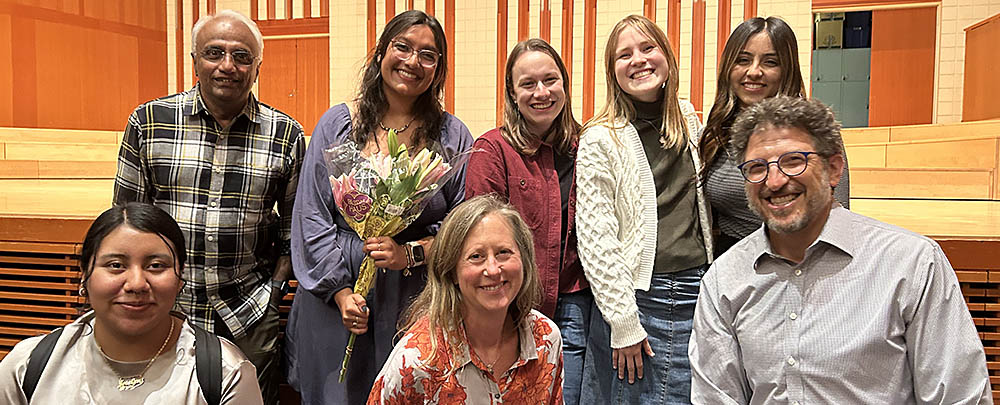
- Our work
Supported by grants from the American Immigration Council’s Center for Inclusion and Belonging and the Wabash Center for Teaching and Learning, the Conversation Project encompasses research, curriculum development, workshops, and public events.
- Our resources
- Our partners
- Center for Inclusion and Belonging
- Salem Art Association
- The Immigrant Story
- Oregon Humanities
- The Hearth
- Center for Engaged Compassion
Along with many other governmental agencies, advocacy groups, and community-based organizations.
- Our story
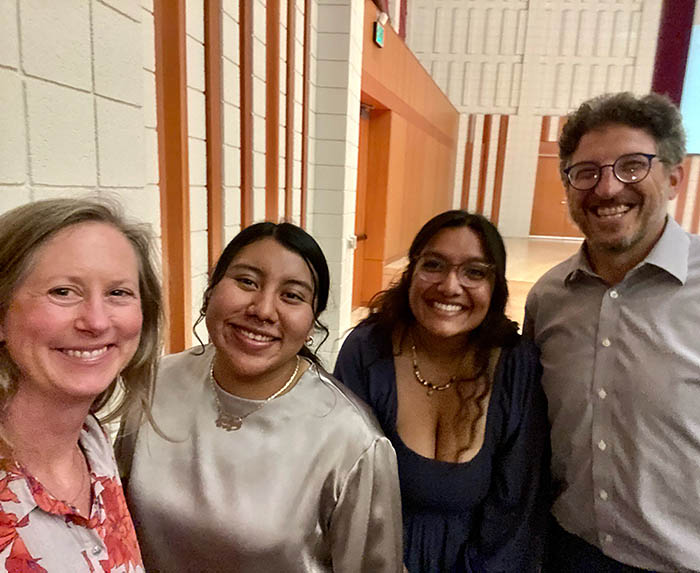 Our project began with a desire to create a greater sense of trust and belonging. The polarization and divisiveness that have defined public discourse in the United States the last seven years have, unsurprisingly, affected the classrooms of higher education. Students are increasingly hesitant to take the intellectual and social risks vital to learning. In particular, they are reluctant to ask questions to which they do not already have answers, to sustain curiosity about ideas with which they disagree, and to hold conversations with people who have ideological positions different from their own.
Our project began with a desire to create a greater sense of trust and belonging. The polarization and divisiveness that have defined public discourse in the United States the last seven years have, unsurprisingly, affected the classrooms of higher education. Students are increasingly hesitant to take the intellectual and social risks vital to learning. In particular, they are reluctant to ask questions to which they do not already have answers, to sustain curiosity about ideas with which they disagree, and to hold conversations with people who have ideological positions different from their own.At the same time, community-based organizations across the country were responding to the problem of polarization by developing a range of “dialogue across difference” projects, some of them quite successful. We studied successful community-based efforts at dialogue across differences (e.g., Essential Partners, Millions of Conversations, Narrative 4, Sisters of Salaam/Shalom, Everyday Democracy, Oregon Humanities, Center for Inclusion and Belonging, and the Center for Engaged Compassion).
After distilling our observations into an analysis of why successful community based efforts work, we translated their approaches into university curriculum with a goal developing pedagogical strategies that empower faculty to create learning environments that support curiosity, compassion, and dialogue across differences.
Based on our research, we designed a sequence of courses that serves as a centerpiece of a broader initiative at Willamette. Utilizing a tiered approach that allows students to develop deeper skills over time, we have been able to prepare students for community engaged learning and meaningful partnerships (link to description of classes?)
Among the community partners with whom our students have worked are The Immigrant Story, Salem Art Association, Youth with Incarcerated Parents Project (YIPP), and the Oregon State Legislature (which is located across the street from campus). Alongside our sequence of courses, we have also taught faculty and students how to integrate these approaches into the University’s general education program, first year seminar, and student leadership positions.
One of the theoretical foundations of our community work is contact theory, which articulates how engage in bridge-building across groups keeping principles of equity and inclusion at the center of group design (see, for instance, Cultivating Contact: A Guide to Building Bridges and Meaningful Connections Between Groups, by Linda Tropp and Trisha Dehrone). We are mindful of the ways in which contact theory can be crudely, even carelessly, reduced to just bringing different groups together with the predictable results that it can make “in-groups” feel better about themselves, “out-groups” feel exhausted and used as a salve, leading to little substantive change. Accordingly, we have designed our courses to prepare students to engage in conversations beginning with an honest assessment of their motivations, and the expectations, fears, and hopes they bring to such encounters.

